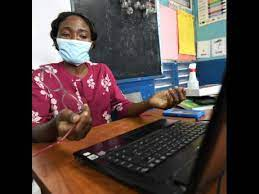Jamaica, The Land of Wood and... Technology??
E-learning platforms have seen a surge in popularity in Jamaican schools, particularly as a result of the COVID-19 pandemic. These platforms offer students convenient access to educational resources and facilitate interactions with teachers and peers, regardless of their location.
To bridge the digital divide, the government distributed tablets and laptops to students, even though resource challenges impeded its execution. Nevertheless, the initiative remains steadfast in providing students with the tools they require for their education. Moreover, technology has ushered in a revolution in homework and assessment practices across all education levels in Jamaica. Teachers now employ technology for creating and grading assessments, offering instant feedback, and tailoring learning experiences to individual students.
While younger teachers in Jamaica are more inclined to embrace technology for their professional development, actively participating in online courses, webinars, and virtual conferences to stay updated on the latest teaching methods and technologies, more experienced educators may lean toward traditional teaching methods.
High schools and colleges
have embraced virtual classrooms and communication tools, which prove to be
particularly beneficial for older students and educators, enabling efficient
virtual interactions and discussions.
However, challenges persist, such as limited internet access in rural areas and the necessity for teacher training in technology integration. Nevertheless, Jamaica is making progress in creating a technology-inclusive education system that empowers students for the digital age.


Comments
Post a Comment